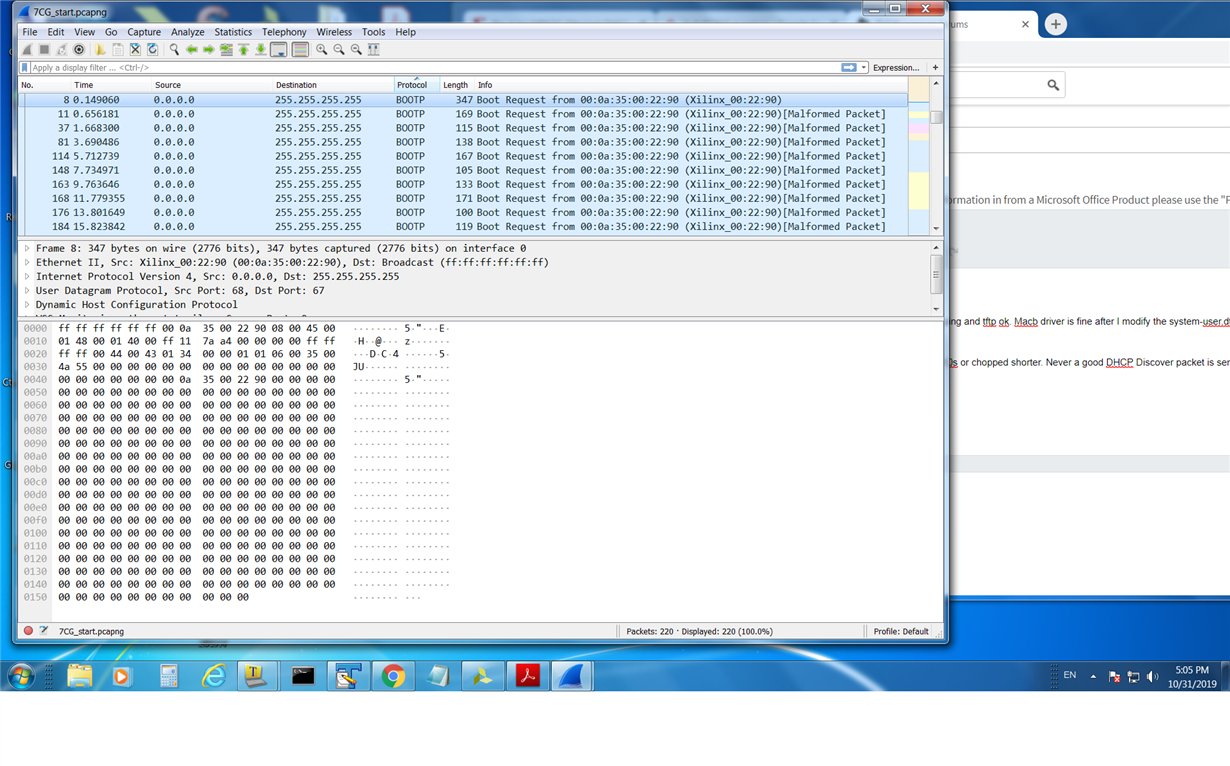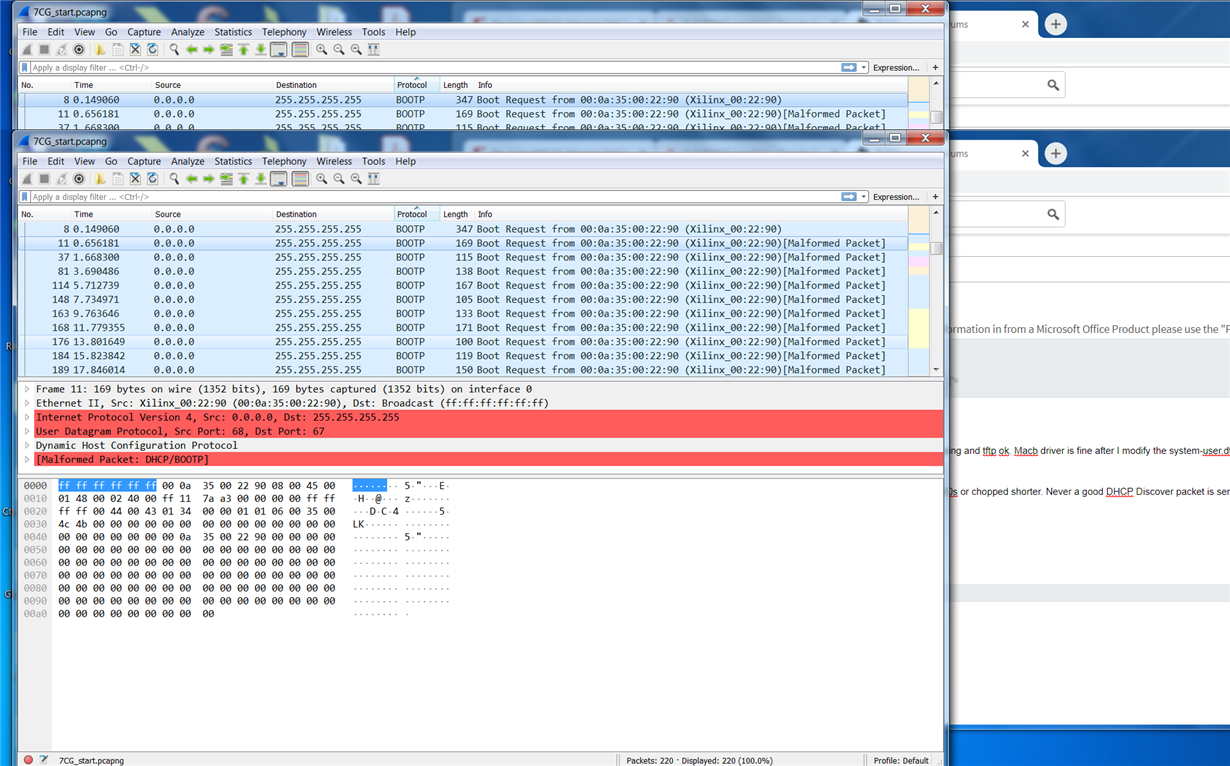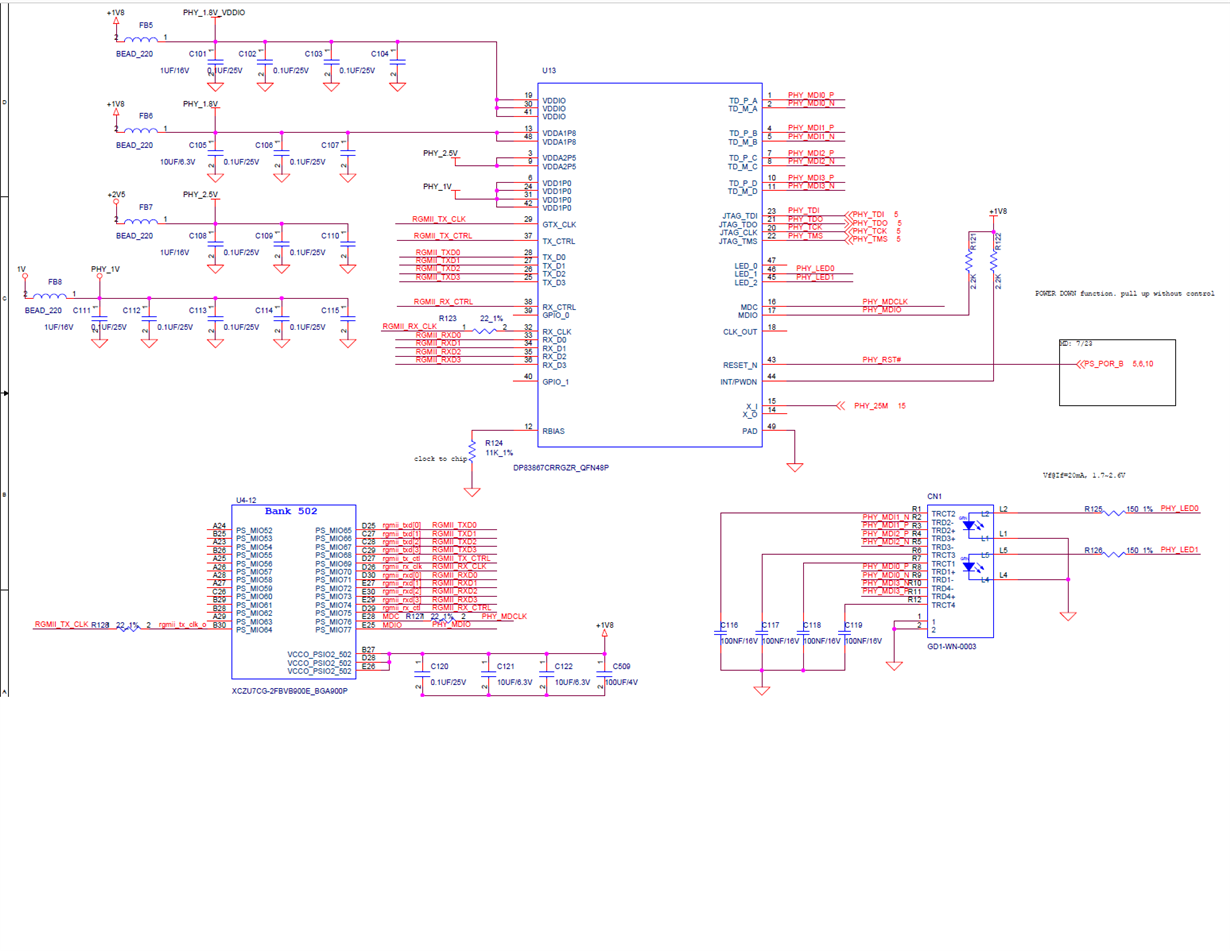Other Parts Discussed in Thread: DP83867IR
Hello,
Hardware: Xilinx Zynq XCZU7CG + TI DP83867CRRGZ
When I built the u-boot and linux kernel, with petalinux default settings, I only get the static IP mode working: ping and tftp ok. Macb driver is fine after I modify the system-user.dtsi but still DHCP not function.
Static IP mode works telling me that the hardware, board level connectivity are good.
So I use WireShark to check what exactly the zynq MPSOC pops out. I found that the packets are padding all 0s or chopped shorter. Never a good DHCP Discover packet is sent. See the attached picture.
I found that Xilinx Evaluation board ZCU!06 use the same TI DP83867IR but with different package. However they are both use as RGMII mode. That's good.
So I built the u-boot and kernel on it. The DHCP works perfectly.
Well, I think U-boot or kernel does not know TI PHY are in different package.
Q1: Is it possible the PHY chip could cut the packet or change the content of the packet?
I put a scope om MDIO. When I enter "DHCP" command, I see some activities on it.
I am thinking the driver tells TI PHY to do something when DHCP is issued.
Q2: Could it be possible when the MAC "notifies" PHY, the signal is bad to cause the DHCP packet end early?
Also attach my schematics.
Please advice, thank you.




